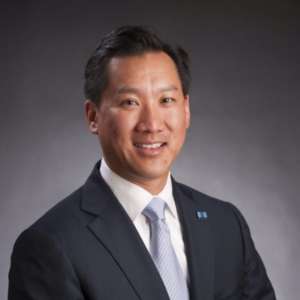

Jeff Pon, nominee for director of OPM, said he'll focus on helping agencies get the "right people in the right places at the right time."
The Office of Personnel Management has been without a permanent director for more than two years, and it hasn’t had a permanent deputy director for more than five years.
Jeff Pon, the president’s nominee for the top spot at OPM, said he wants to focus on helping agencies bring on the “right people in the right places at the right time.”
Yet for Senate Homeland Security and Governmental Affairs Committee Chairman Ron Johnson (R-Wis.), the wait for a new permanent OPM director may go on longer. Johnson threatened to put a hold on Pon’s nomination until OPM produces all documents related to the agency’s 2013 ruling on a special exemption to the Affordable Care Act for members of Congress and their staff members.
Johnson said he’s tried to get the information for four years now, and his patience is thin.

“I do believe it’s a very important issue,” Pon said, when asked about the documents. “The request, I believe, has been recognized in OPM and they’re in the process of providing you documentation. I don’t know the extent of the documentation. If confirmed, I will make sure that I look into it myself personally. I will make sure that if there are any documentation to be provided to you, I will inform you what the status is and make sure that we will follow up on it.”
Johnson revived the issue in August. He threatened to subpoena OPM for the proper documents a few weeks ago.
“Unless I’m satisfied that that’s being done in good faith [and] I’m going to get all the documentation, no offense to you, I’ll be holding up your nomination,” Johnson said.
Johnson brought forth the same issue during former acting OPM Director Beth Cobert’s own nomination hearing in February 2016. Cobert, at the time, made similar promises to comply with the Senate’s request, but the chamber ultimately never confirmed her to a permanent position.
But beyond Johnson’s specific frustration with a four-year-old ruling, Pon sailed through his nomination hearing with little controversy.
Pon acknowledged inefficiencies that plague many aspects of OPM’s purview, from the backlog of federal employee retirement claims to the lengthy and confusing hiring process.
“I want to work with this committee to tackle the big problems,” he said in his opening testimony. “We have not taken a hard look at our civil service laws in decades, we are still relying on paper processes and in too many areas the federal government is not a workplace that is keeping up with the demands of the next generation of public servants or serving our current federal employees.”
Processes across the board need to be simplified, Pon said, and he envisioned a future where OPM can handle everything from recruitment to retirement electronically.
“The technology’s not the problem,” Pon said. “It’s actually making sure that we execute on putting things together and simplifying things and making sure that the transactional data, not just paper, but transactional data that you need, can actually be transacted in an efficient and effective manner. I would prioritize the things that we need to process things, to keep things moving, and then worry about the paper a little bit later.”
The hiring process is another area where Pon said he’ll focus. OPM has launched several hiring initiatives in recent years, but it took most agencies, on average, 100 days to recruit and onboard new talent.
Agency hiring managers have about 105 different hiring authorities, yet few know how to use them properly.
“We need to speed things up,” Pon said. “We need to make sure that everyone, all the way down the line, actually understands the authorities that they have, and if they don’t have the authorities, I will talk to you and your constituents and make sure we can discuss the … challenges of hiring and retaining the talent that you have.”
Pon, who once served as the Energy Department’s chief human capital officer, said he had to “push the bureaucracy” to hire nuclear engineers within two days of pre-screening applicant resumes and conducting interviews. Similar tactics can work elsewhere, he added.
Committee members also touched on the many and varied roles of the OPM director. They asked about his plans to continue much-needed improvements to the agency’s troubled cybersecurity systems and how he sees OPM’s role in the administration’s government reorganization efforts.
“Our expectation is that you will be heavily involved with [the Office of Management and Budget], that you will be working hand in glove to try and help them evaluate personnel needs within agencies,” Sen. Heidi Heitkamp (D-N.D.) said. “Can you commit to us that your work will be seamless with OMB and that you will be a fierce advocate for appropriate staffing, not just easy staffing?”
Pon, who has experience consolidating payroll functions, standing up HR shared shared service centers and launching USAJobs.gov, said he understands the nuances that come with big government projects like the administration’s reorganization initiative.
“My leadership style is to be responsive and follow the advice of people who recommend those things, but also it’s not to just manage the things that we get confronted [by],” Pon said. “To use your language, we need to be an advocate for leadership.”
Senators are still concerned by the sluggish progress OPM has made to improve its cybersecurity and meet Federal Information Security Management Act (FISMA) requirements. For Pon, recruiting top IT experts to shape OPM’s security response will be key.
“This is my number one priority to make sure that we have security, not only information security but personal security, making sure that we have a safe workplace,” Pon said. “On my watch, we will make sure that we not only have the qualified people but we have a plan to execute and deter the risks that we have. We have designed a threat analysis. I want to make sure that those are robust so we can prioritize and alert people on what those risks are so that we have a game plan for closing those gaps. It is unacceptable to me to have people who are not trained in the current ways in which we protect our data.”
Michael Rigas, the president’s pick to be OPM’s deputy director, promised that he would also work closely with the agency’s chief information officer and chief information security officer to improve its security posture.
Copyright © 2025 Federal News Network. All rights reserved. This website is not intended for users located within the European Economic Area.
Nicole Ogrysko is a reporter for Federal News Network focusing on the federal workforce and federal pay and benefits.
Follow @nogryskoWFED

